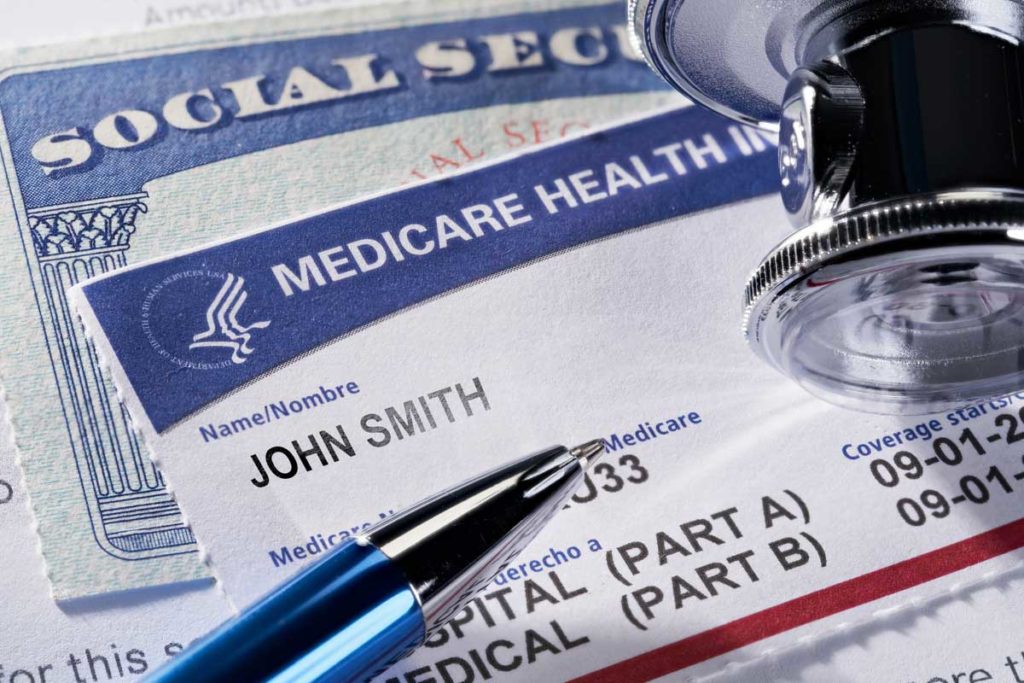Medicare Part A Coverage
One of the most basic coverages provided under Medicare Part A is inpatient care in a hospital or rehabilitation facility.
Medicare.gov explains that Medicare Part A is often referred to as “Hospital Insurance.” Rightfully so, as this is the part of Medicare that covers expenses related to hospital, nursing facility care, hospice, and home health care.
Inpatient Hospital Care
One of the most basic coverages provided under Medicare Part A is inpatient care in a hospital or rehabilitation facility. It also provides coverages related to inpatient mental health care, if this type of treatment is needed.
A few of the inpatient expenses covered by Medicare Part A include:
- General nursing staff
- Medications used while in care
- Various other medical services and supplies used while in the hospital
- A semi-private room (unless a private room is deemed medically necessary)
- Meals
However, there are some hospital-related expenses that Medicare Part A does not provide coverage toward. These include certain non-medical expenses, such as costs associated with having a telephone or television in your room. It also does not cover charges assessed for personal care items such as a razor or set of slippers.
Skilled Nursing Facility Care
If skilled nursing facility care is required, Medicare Part A will cover some of these expenses as well. However, they’re only covered if:
- You have time left in your benefit period
- You have a qualifying hospital stay (typically three days)
- Your doctor says you need skilled nursing care
- You have a medical condition requiring that you stay in this type of environment
Additionally, the skilled nursing care facility must be certified by Medicare to be eligible for coverage benefits under Part A, some of which include:
- Skilled nursing care
- Speech, physical, or occupational therapy
- Medical supplies and equipment used while in the skilled nursing facility
- Medications
- Transportation via ambulance for services not offered at the facility
- A semi-private room
- Meals and dietary counseling
Hospice Care
If you’re diagnosed with a terminal illness and your current treatments are not working or you decide that you no longer wish to pursue medical care, hospice care may be paid for under Medicare Part A. It can either be provided in your home or in a hospice facility.
Depending on the plan created by the hospice team with your specific situation in mind, Medicare may cover expenses related to doctor and nursing services, medical equipment and supplies, and pain- or symptom-relieving medications. Coverage may also include homemaker services, therapy services, dietary counseling, and grief and loss counseling for you and your family.
However, it’s important to realize that once hospice benefits begin, Medicare will not cover:
- Treatments or medications designed to cure your illness or related conditions
- Any care not predetermined by your hospice team
- Care received at a hospital, whether inpatient or outpatient
- Ambulance transportation
- Room and board, unless arranged by the hospice team at a short-term inpatient or respite care facility
Home Health Care
Part A also provides coverage for certain home health services. These include physical and occupational therapy, speech-language pathology, and medical social services.
If part-time or intermittent skilled nursing or home health aide care is necessary, Part A may cover these as well.
What isn’t covered in home health situations is 24-hour care, delivered meals, or homemaker services. Medicare Part A will also not pay for any help the participant receives with regard to personal care activities like dressing and bathing if that is the only care needed.

Medicare Part B Coverage
One of the benefits of choosing Medicare Part C is that many of these plans provide Part D coverage as well.
Part B is the “Medical Insurance” piece of Medicare and covers most preventative services fully. It also provides at least partial coverage for medically necessary services and supplies needed to diagnose and/or treat existing conditions.
Part B also pays a set amount toward other expenses, such as:
- Ambulance services to or from a hospital if it is an emergency situation, your medical condition requires it, or other forms of transportation could be detrimental to your health and welfare.
- Airplane or helicopter transport if you need medical attention quicker than transport by ground transportation would allow, or if you’re in a location difficult for ground transportation to reach.
- Durable medical equipment that your doctor prescribes for in-home use. This includes blood sugar monitors, canes, commodes, hospital beds, crutches, oxygen equipment, wheelchairs, patient lifts, walkers, and traction equipment. To qualify, the equipment must be designed for repeated use and strong enough to last a minimum of three years. The equipment must also not be “usually useful to someone who isn’t sick or injured,” according to Medicare.gov.
- A pre-surgical second opinion not involving an emergency situation. For this piece of medical advice to be covered, the doctor providing the second opinion must accept Medicare.
- A limited number of outpatient prescription drugs, such as some antigens, blood clotting factors, and injectable and infused drugs. Part B also covers certain vaccinations, immunosuppressive drugs (used in transplant scenarios), oral cancer drugs, and oral anti-nausea drugs, among others.
- Clinical research studies designed to either diagnose or treat a specific illness. Medicare Part B benefits may include costs associated with medical services, new drugs and other experimental treatments, and monitoring for potential side effects.
- Mental health care, whether inpatient, outpatient, or via partial hospitalization. Part B specifically covers costs associated with mental health professionals (such as psychiatrists, psychologists, and clinical social workers). It also helps to pay for mental health evaluations and tests, depression screenings (one per year), psychotherapy, medication, and annual preventative and wellness visits.

Medicare Part C Coverage
As an alternative to purchasing Part A and Part B, some participants receive Medicare benefits through Part C, which is commonly known as Medicare Advantage. Instead of the federal government providing healthcare coverage, Medicare Advantage’s benefits are offered through private insurance companies that have been pre-approved by Medicare.
One of the benefits of choosing Medicare Part C is that many of these plans provide Part D coverage as well. This enables participants to have all of their healthcare needs covered under one healthcare plan.
Although each plan provides different coverages, another benefit is that all Part C plans must provide the same coverages offered under Original Medicare parts A and B. However, some will offer additional benefits related to services and supplies not typically covered by Medicare (such as vision, dental, and hearing).
Medicare Part D Coverage
Part D refers to the prescription drug coverage portion of Medicare and each plan has its own set of covered drugs. Additionally, each drug is placed in a designated tier within that plan, which ultimately determines the copayment and/or coinsurance cost of the drug.
To find out the specific medications your plan covers, check with your Medicare provider or read through your individual plan.
Alternatively, if you’re taking a particular drug and want to find a Medicare plan offering the best benefits possible for that specific medication, Medicare.gov has a Medicare Plan Finder on its website that helps you locate options to consider.

Medicare Supplement (Medigap) Coverage
Part D refers to the prescription drug coverage portion of Medicare and each plan has its own set of covered drugs.
Medicare Supplement policies, also known as Medigap, are designed to help cover expenses not covered under Original Medicare Parts A and B.
For instance, Medicare typically only pays for health-related services provided within the United States. However, certain Medigap plans will pay a portion of medical costs incurred while traveling to foreign lands.
These include Medigap Plans C, D, F, G, M, and N. And though Medigap Plans E, H, I, and J are no longer available for purchase, if you bought one of these plans long ago and still have it today, foreign travel emergencies are covered (in part).
There are some expenses that Medigap does not cover. This include costs related to vision, dental, and hearing aids. Medigap also does not pay toward long-term care or private-duty nursing expenses.
What Medicare Does Not Cover
Medicare as a whole covers a wide variety of physical and mental health services—whether in whole or in part—but there are some expenses it will not pay toward.
Among them are:
- A majority of dental care services, including dentures
- Eye exams needed for prescription glasses
- Hearing aids and fitting exams
- Routine foot care
- Long-term care
- Acupuncture
- Cosmetic surgery
If you have any questions about whether Medicare will cover your specific tests, items, or services, Medicare.gov has an online search tool that helps you know your exact coverage details before even being seen or treated by a healthcare professional.
Do you want to cite this page? Use our ready-made cite template.
